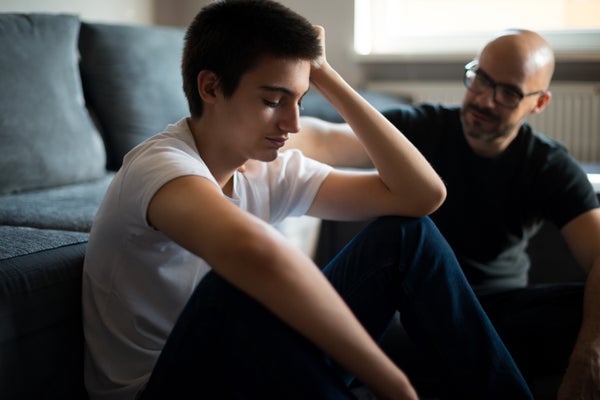Stay-at-home orders due to COVID-19 have been in place for several months now. For many parents, these requirements have led to a balancing act between working from home and attending to their children. Families have been forced to adapt to unexpected disruptions in their daily routines, and kids have been isolated from their peers—all of which can affect their psychological well-being.
“I think even though everyone is having some experience of loss and grief over not getting to do the things they’re used to doing, we’re going to see a lot of individual differences in how kids react.”
University of Washington psychologist Liliana Lengua. She says a child’s temperament has a big influence on how they respond to stressful events.
On supporting science journalism
If you're enjoying this article, consider supporting our award-winning journalism by subscribing. By purchasing a subscription you are helping to ensure the future of impactful stories about the discoveries and ideas shaping our world today.
“Kids who were already prone to being fearful or anxious might be especially anxious about getting sick or about family members getting sick.”
Very sociable kids may struggle more with social isolation than others do. And kids who are easily frustrated may become even more so. But despite these differences, Lengua says parents can help their kids cope by validating their feelings.
“Validating really means hearing, listening, recognizing what the source of that person’s emotional experience is—and recognizing the truth of it.”
It’s also important to check in with kids about the very real fears they face.
“Inviting children to talk openly, and sometimes showing our own vulnerability, can be helpful in facilitating that conversation.”
For teens, being cut off from friends can be especially challenging.
“And I think all parents can do at that point is validate their youth: ‘This is awful. This is hard. I know this is really a loss for you.’ And just recognize those feelings and not dismiss them.”
But how can a parent tell if their child might be developing more serious mental health issues? Lengua suggests keeping an eye out for big changes from their normal selves.
“Has this gotten really so extreme that it’s interfering with that child’s functioning or their relationships?”
For example, more intense and frequent emotional breakdowns, an inability to enjoy anything or withdrawal from the family. In those cases, Lengua recommends seeking professional guidance, which could start with the family pediatrician.
As the school year finishes, and we head into summer, uncertainty remains:
“We don’t have an end point. We don’t know even what fall is going to look like. We’re going to have to find more tools and skills for keeping up our spirits, for keeping up our resilience.”
One crucial way parents can help their kids?
“I think parents really need to take care of themselves, too.”
—Susanne Bard
[The above text is a transcript of this podcast.]

